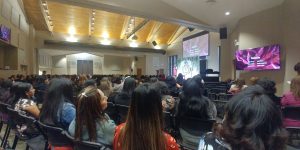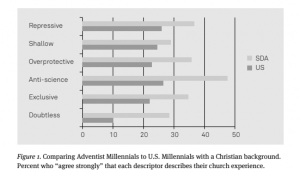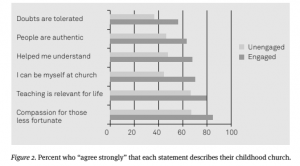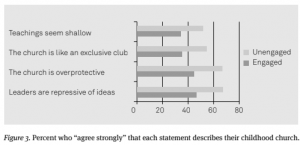
In March, I attended a Hispanic Weekend Spiritual Retreat for ladies and girls, ages 10 years and up, in my local church conference. The retreat was held in Cohutta Springs, Georgia. I traveled there with my mother, sisters, and other women from my parents’ church.
I enjoyed the event. However, throughout the weekend there was a constant stream of topics to which I could not relate. The irony is that it was supposed to be a retreat for women of all ages. Unfortunately, that was not the case.
The first night’s meeting made me feel like an outsider. It focused on married women with children and single mothers. There was a separate program for girls ages 10 through 17.
Once the speaker began to speak about her intimate relationship with her husband, I felt awkward. Other women nodded their heads in agreement as she openly talked about healthy, loving marriages and ways to love and treat your husband, but I could not agree or relate.
My mom noticed a shift in my body language. “If you don’t feel comfortable being here, then how about you join the youth group,” she said.
I looked at her with an irritated facial expression.
I told my mom I am 21 years old and an adult. Simply not married and childless. For a retreat the marketed to all women, it just so happened that they forgot about my age group. When I expressed those sentiments to my mother and twin sister, they told me to take the information as advice for when I marry in the future.
According to the 2018 North American Adventist Demographics Report, a study conducted by the Center for Creative Ministry and Commissioned by the NAD Office of Education, nearly four out of five adults in the Adventist population are married. But surveys of single adults among Adventists have reported that they often feel that congregations are dominated by married people and not very welcoming for singles.
“Over the last decade since the 2008 survey, the Adventist population has shifted even further away from single adults toward married individuals,” according to the study. “The percentage of divorced singles has not changed, but the percentages of primarily younger never-married singles and primarily older widowed singles have each dropped by roughly half. “
The demographic study suggests it could be an indication that Adventist congregations in North America are not improving their ability to connect with single adults and make them feel at home. It clearly states that there needs to be attention given to developing a more effective single’s ministries in the NAD.
I hope for the next Hispanic women’s retreat won’t overlook us single ladies; because although we are not in relationships or have children, we can still bring our flavor to the world.







